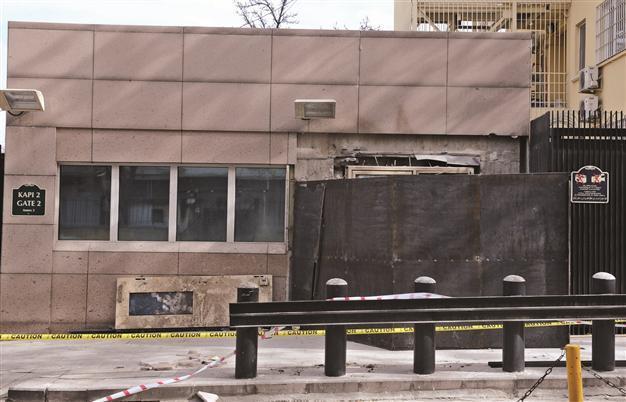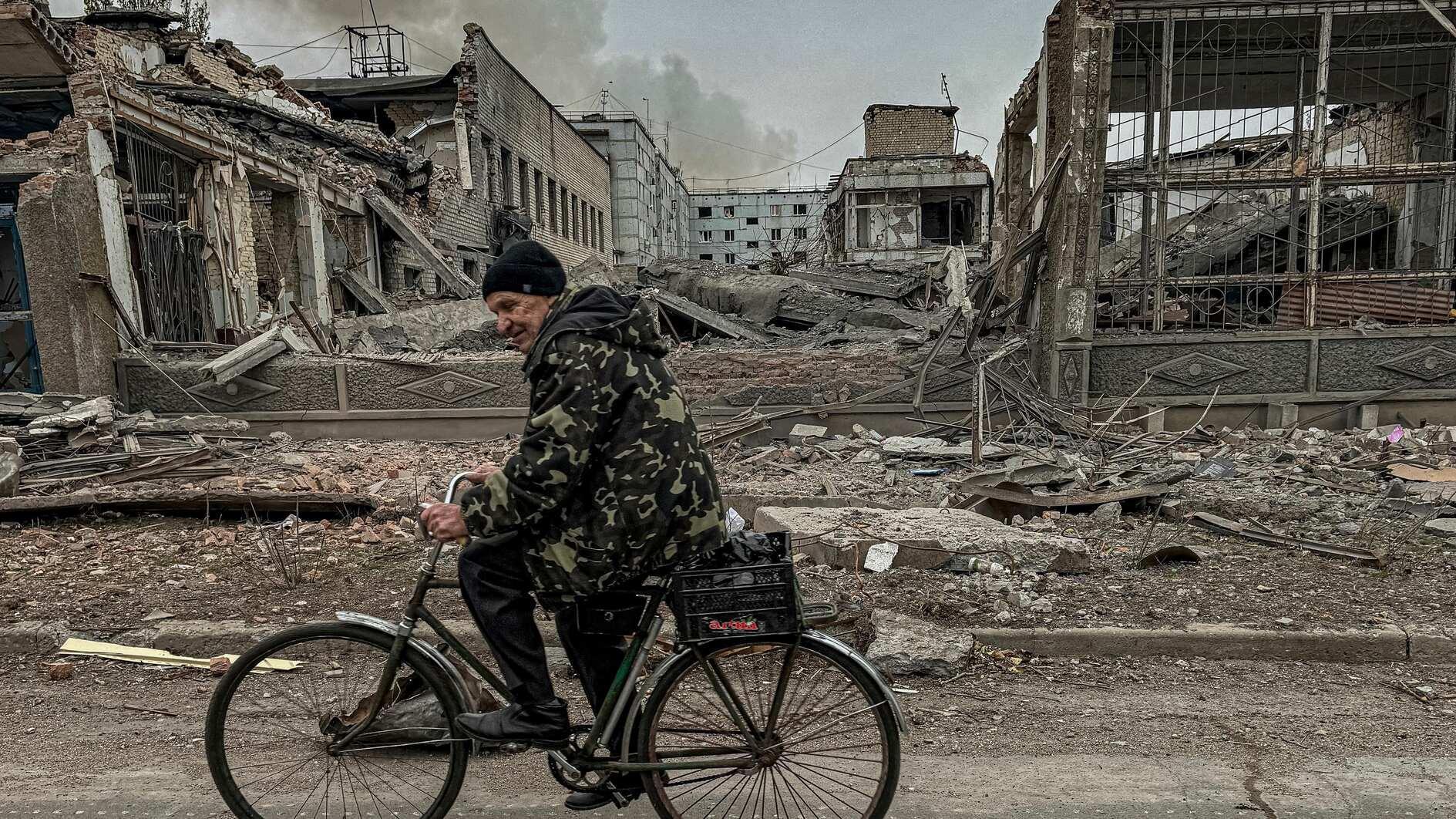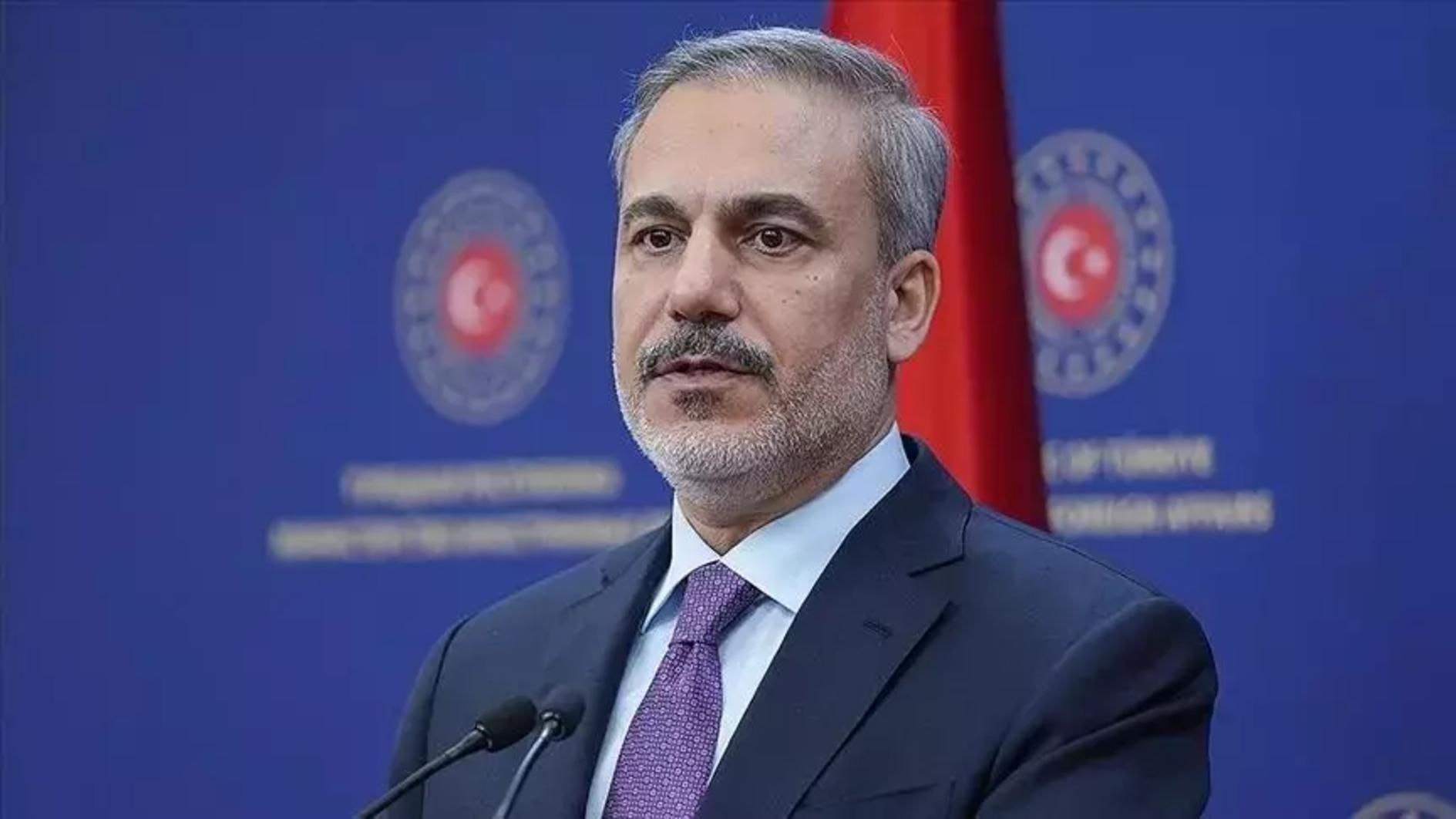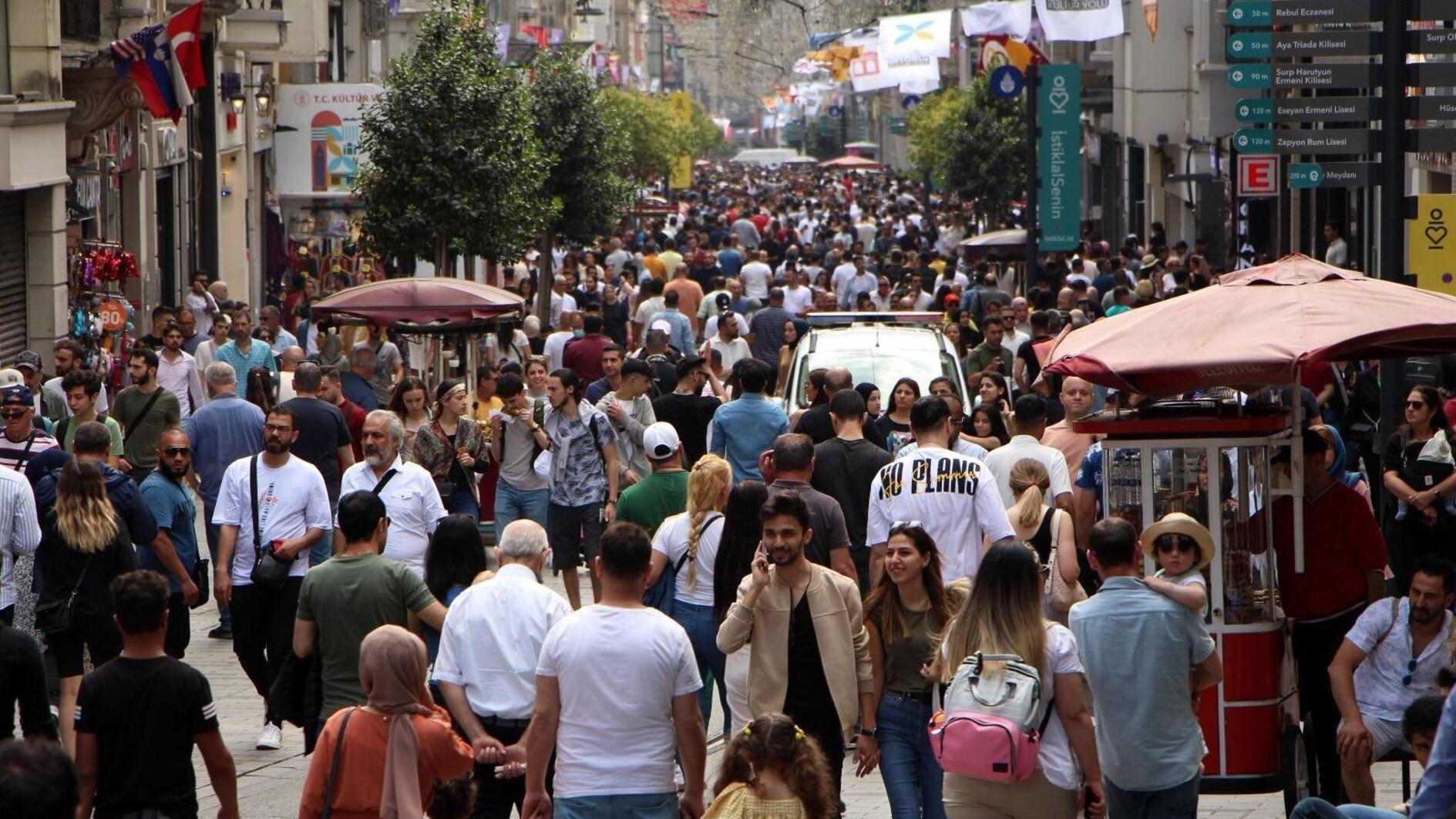Turkey, US to step up legal case against terror
ANKARA - Hürriyet Daily News

The suicide attack on the US Embassy killed a security guard and injured a journalist. US envoy to Ankara said the attack has drawn US and Turkey closer. DAILY NEWS photo, Selahattin SÖNMEZ
Last week’s suicide blast against the U.S. Embassy in Ankara pushed Ankara and Washington to step up their joint anti-terror fight with an emphasize on the judicial cooperation, something the United States was long complaining about due to deficiencies in Turkey’s legal system. The cooperation between two countries could also bring about a court case against the Revolutionary People’s Liberation Party/Front (DHKP-C) either in Turkey or in the U.S. aimed at creating evidence.“I can tell you that we’re in intensive cooperation with the intelligence, law enforcement and more importantly with the ministry of justice to step up what was already excellent cooperation and bring that cooperation to the level the U.S. enjoys with our closest allies and partners around the world,” Francis Ricciardone, U.S. ambassador to Ankara, told Turkish print media Ankara bureau chiefs.
Mustafa Akarsu, the embassy security guard who was killed and journalist Didem Tuncay was seriously injured as a result of a suicide attack at one of the well-protected embassy gates. The attack was claimed by the DHKP-C, an illegal leftist terror organization.
The ambassador confirmed reports that an FBI team, who was already in Turkey’s neighborhood to carry out an investigation on another bomb attack, was dispatched to Ankara to work together with Turkish police to gather not only intelligence but also evidence in order to open a court case.
“The U.S. has certain legal authorities under our own system to go after and prosecute people who may be outside the U.S. and who are conspirators in attacks against the U.S.
That’s an authority under our law. So what the DHKP-c has done has put itself very squarely in the path of American justice. Now we can work with other countries, with European countries besides Turkey,” he said.
The evidence to be collected out of this attack could be used in a courtroom to try a convict, he said.
“Because American courts are recognized and accepted, I hope we can step up international legal collaboration against this group. We would need to get evidence and work on that together, before we can open a law enforcement case. And we would not necessarily publish it and there may be a secret indictment. But we should really start to work together to prepare a strong case.”
Deficiencies in Turkish legal system
Although cautiously, the envoy did not hesitate in voicing its perceived deficiencies in the Turkish legal system in adequately responding to terror acts committed against people other than the Turkish state.
Strengthening of Turkish law and harmonizing law enforcement and prosecution techniques would be powerful for the U.S., he said. Having an excellent legislation reinforced by police and well prosecuted by courts would bring about a well-functioning system in Turkey’s fight against terror.
For Ricciardone, the body of law with respect to terrorism has some notable problems, the most important example of it is the failure of Turkey to be part of the Financial Action Task Force (FATF) by adopting an international convention preventing of terror financing. “In 2005 the FATF, working together with Turkey, found out that the Turkish law did not define terrorism in the international standards. “In Turkey most definitions of terrorism have to focus on attacks against the the Turkish state.
And the definition becomes less clear when it comes to international terrorism,” Ricciardone said, underlining that the draft law on the adoption of TAFT was still insufficient in this regard.
“That’s important because Turkey wants to be a financial center. The U.S. wants Turkey to become a leading economic and financial center. We support your ambition to have a first-class transparent financial system. One of the real seals of approval that is necessary is the seal of the TAFT approval.
This is a huge opportunity and I hope your parliament will see this opportunity and set the standard,” he said.
Ricciardone criticized the fact that in Turkey there were so many lawmakers, non-violent student protestors, professors like Kemal Gürüz and military leaders behind bars for extended periods of time based on unclear charges.
Ricciardone also said that criticisms on this issue were not only coming from foreigners or opposition parties, but also from the country’s most senior figures.
















